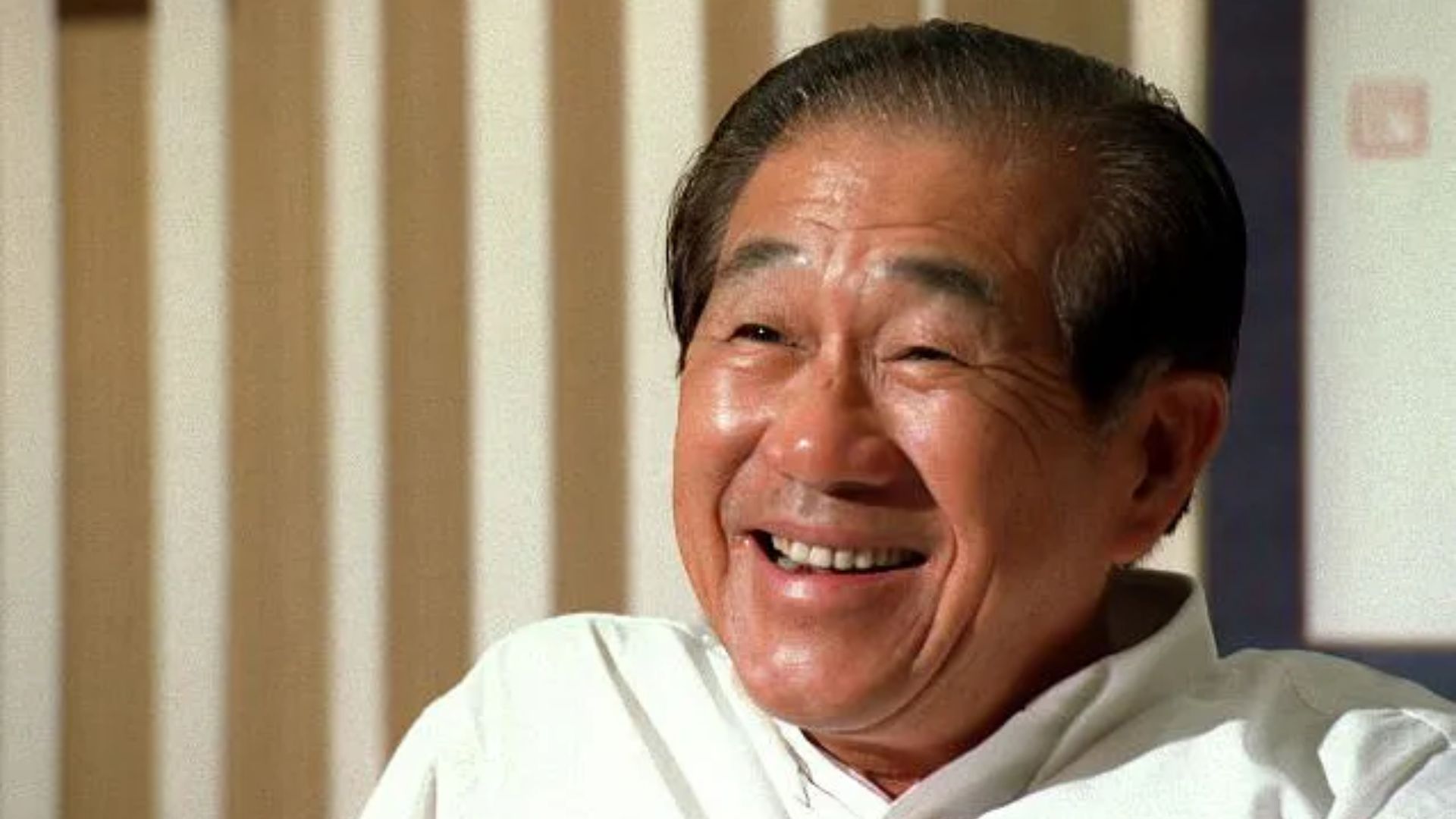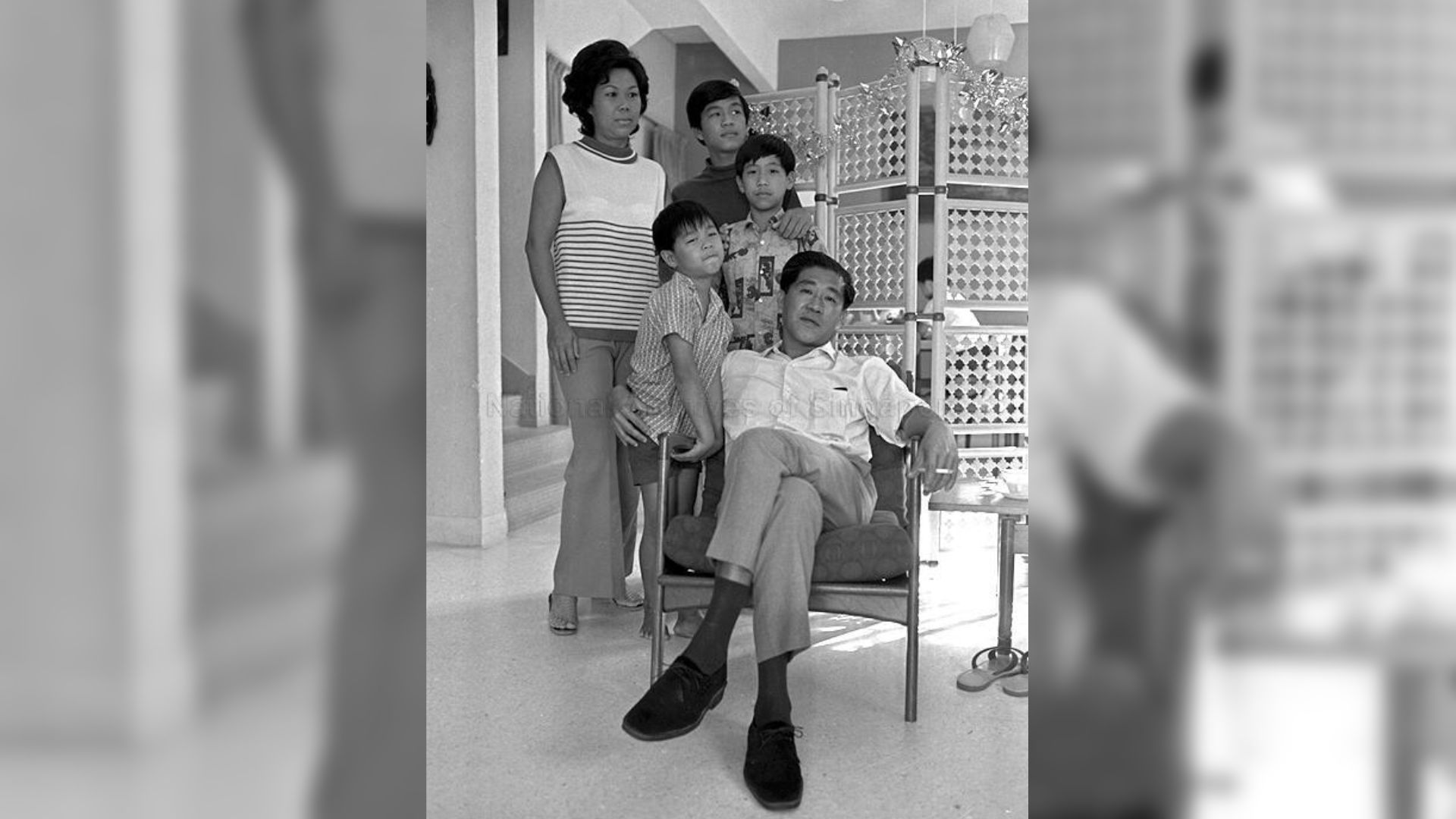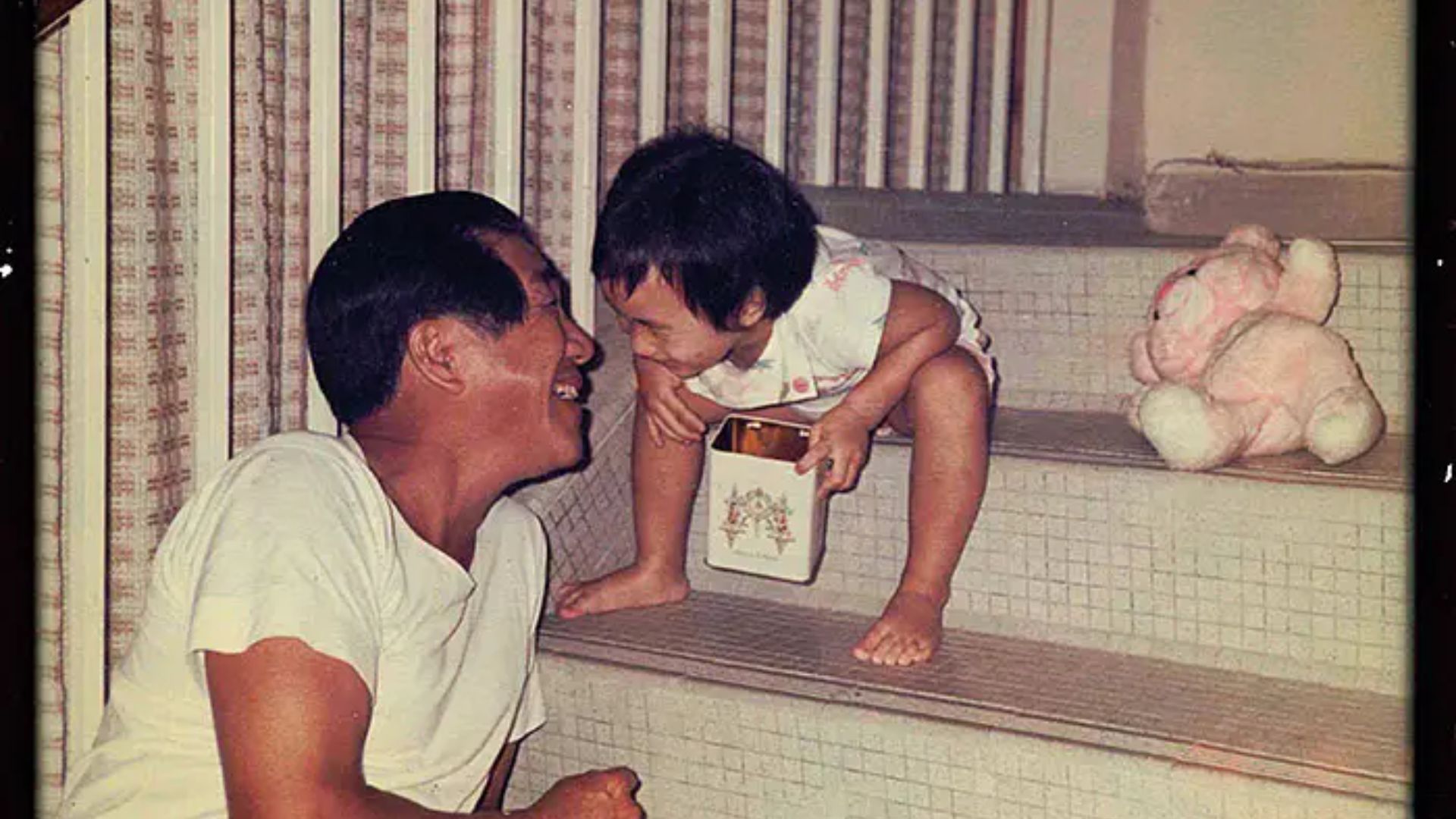Former top civil servant Sim Kee Boon was not immortal, says his granddaughter Leanne Sim. In fact, he was as human as could be with all the flaws that came with being a man.
And writing his biography took two geneses and eight years before it was completed.
Ms Sim, who co-wrote her grandfather’s book, titled Sim Kee Boon: The Businessman Bureaucrat, tells TheHomeGround Asia it was her father who wanted a book written “two years after my grandfather passed just for posterity and something to pass down to the children” but then in the eight years there were a lot of false starts and a lot of challenges.
“It was difficult and we just didn’t know where to start,” she adds.
Mr Sim, who had been battling stomach cancer for 15 years, died at the age of 78.
Sim Kee Boon, civil servant extraordinaire
Born in a three-storey shophouse along the Singapore River near Elgin Bridge in 1929, Mr Sim was the second eldest, with an older brother and younger siblings comprising six boys and four girls, including two adopted sisters.

He joined the Singapore civil service after graduating from the University of Malaya in 1953, and quickly rose to become acting Permanent Secretary at the National Development Ministry (MND) in 1962, and the Finance Ministry (MOF) in 1963.
He became its Permanent Secretary and chairman and managing director of Intraco from 1968 to 1974, before moving to the Ministry of Communications as its Permanent Secretary from 1975 to 1984.
Mr Sim was appointed Head of the Civil Service in 1979, a post he held till 1984, when he became chairman of Keppel Corporation and the Civil Aviation Authority of Singapore (CAAS). He was also chairman of the Singapore-Suzhou Township Development, a member and later chairman of the Council of Presidential Advisor, director of DBS and Temasek Holdings.
He was one who successfully transitioned from public service to the private sector and his strengths were summed up in the late founding prime minister Lee Kuan Yew’s tribute to Mr Sim following the latter’s death, “He was the most versatile of all the officers who worked with me, with both administrative skills and business acumen, plus good interpersonal touch that would have made (him) a successful entrepreneur.”
After witnessing Mr Sim rose through the ranks in the civil service, Dutch economist and adviser to the Singapore government from 1961 to 1984 Albert Winsemius said the ideal Singapore civil servant should have the calm, steady, unflappable approach of Hon Sui Sen; the sergeant-major quality of Howe Yoon Chong; and the business suaveness of Sim Kee Boon.
Even Prime Minister Lee Hsien Loong, in the Forward of the book, wrote, “There are many anecdotes from his efforts in building Changi Airport from zero, including the famous ‘12-minute rule’ for the first luggage to be ready for collection after the aeroplane is berthed. His far-sighted anticipation of travellers’ needs, hands-on approach and attention to detail made all the difference.”
While Mr Sim might have played a key role in the success of Changi Airport and turned the fortunes of Keppel Shipyard around, except for those who once worked with the man, not many Singaporeans know who he was.
Sim Kee Boon – The civil servant first, the father second
Ms Sim says the overall intention of her grandfather’s book was actually to write something that was nice “but at the same time we wanted to make sure that he wasn’t painted as someone perfect or immortal”.
“I love the Eight Immortals book, written by Peh Shing Huei and his team, but I wanted to make sure my grandfather is portrayed in this biography as a human and that he made a lot of mistakes,” she says.
“The only reason he was able to be successful in what he did was because he loved Singapore immensely. If you love something so much and are obsessed with it, you would want to make it a success,” Ms Sim adds.
She admits that there were a lot of emotions involved in this book and that it was difficult to write.
“I think my father and uncles wished that he could have been more of a mentor to them. The most important thing is to know he wasn’t perfect. When he chose to pursue something like work or country, that meant he had to sacrifice something else,” she says
Drawing the analogy of a juggler, Ms Sim says, “You cannot juggle 10 balls and keep all of them up in the air at the same time. You have to choose to drop some. And I think most of the time, my grandfather sacrificed his family. My uncles and even my father often asked why he mentored other people like a father and only saw his own children once in a while and did not give the same sort of caring vibe.”

Ms Sim wrote in a chapter of how her uncle Paul, “the third of Kung Kung’s five sons”, started primary school at Catholic High in 1967 and it was her grandfather’s secretary Christine Koh (née Saradetch), a lady of Eurasian parentage, who took him to the orientation “because his parents were busy working”.
“When most of the other boys had both parents taking them to school for the first time, there I was, a Chinese boy being accompanied by a Eurasian lady. We received many quizzical looks. My father was so busy I don’t think he ever set foot in my school the entire time I was there,” ,” Paul reminisced in the book.
It takes two women to do the job
To address Mr Sim’s achievements in the biography, an impartial third party was needed so that it is not literally a “grandfather’s story”. That voice was found in former magazine writer and co-author Low Shi Ping.
“There were a lot of false starts, talking to a lot of publishers, a lot of writers. And eventually we found a woman who was amazing and she helped me to create the book. Without Shi Ping, we would not be able to start the book. She was very diligent and very disciplined. Sometimes it takes a woman to do the job,” Ms Sim says.
Ms Low says the initial plan was to have her write about his career and accomplishments, with Ms Sim “chiming in occasionally”.
“But as the project went along, Leanne started to talk to her family members and family friends and we started to discover new sides and facets to him that I was not privy to, and since she was getting all these gems, it went from one chapter to two and then three. Then there were the box stories and we tried to use that to balance out the private side of him,” Ms Low says.
For her part, Ms Low interviewed a total of 47 current and former civil servants, and people who worked under Mr Sim to draw out how the man was able to inspire the deepest loyalty and love. She says a few interviewees even cried.
The most memorable for her was Mr Francis Rozario, who was the first to shed tears when he was remembering Mr Sim. Mr Rozario was appointed by Temasek Holdings in 2003 to head its newly formed financial services subsidiary, Fullerton Financial Holdings (FFH) and he played an active role in overseeing the management of Bank Danamon (Indonesia).
Ms Low says he was recounting the bombing at the Marriott Hotel in Jakarta in 2003 and how he will never forget the compassion Mr Sim accorded to him.
Mr Rozario had gone to the Marriott for lunch that fateful day and had just been seated at the Japanese restaurant when a car bomb went off outside the lobby. Fortunately he was at the back of the hotel furthest away from where the bomb went off and managed to get away uninjured.
“He said it is a memory he will never forget. Mr Sim had called him to see if he was ok and he said he could sense the genuineness of his sentiments, his concern. At that point we had to pause because Mr Rozario cried. He said, ‘That was when I saw the caring side of SKB, not as my boss but as a human being’,” Ms Low says.
Setting the “north star” to make sure the writing did not deviate
But his story was not unique. There were similar stories told about Mr Sim’s accomplishment, his leadership and his compassion in different organisations and by the different people.

One of the many values Mr Sim possessed was how he treated everyone the same – from cleaners to prime ministers and Ms Low admits that having to sift through so much information gathered, the task of organising it was “rather daunting”.
“But what was really helpful was Leanne set a very clear vision from the start. And that vision or ‘north star’ was basically to tell the story of SKB, that his life was born from hard work, sacrifice and a love for country. We were very clear of what our ‘north star’ was and Leanne constantly reminded me what it was and it never changed. That guiding light was constantly in front of me and I always knew I had to work towards it,” she says.
“Here was a man who did not care for remuneration. He did not look for a five-, six-figure salary. Nothing like that. Leanne also laid a good foundation because this project was eight-years in the making so they already had the idea of who they wanted me to speak to, which were the organisations that he was involved in. … It’s just a really really long feature story,” Ms Low says.
Now that this one million piece jigsaw puzzle has finally been pieced together, will there be a second book on Mr Sim?
“Most of my friends say they read it in one night and had wanted more. A lot of people asked where my part two was and for us to tell them more. It was so exhausting creating part one, I’m not sure I might be able to do part two,” Ms Sim says.
Sim Kee Boon: The Businessman Bureaucrat, published by Landmark Books, is available at $30 before GST in all major bookshops.
RELATED: Er Kwong Wah: The “roadie” who set the stage for SDU, matchmaking service for grads
Join the conversations on TheHomeGround Asia’s Facebook and Instagram, and get the latest updates via Telegram.





























